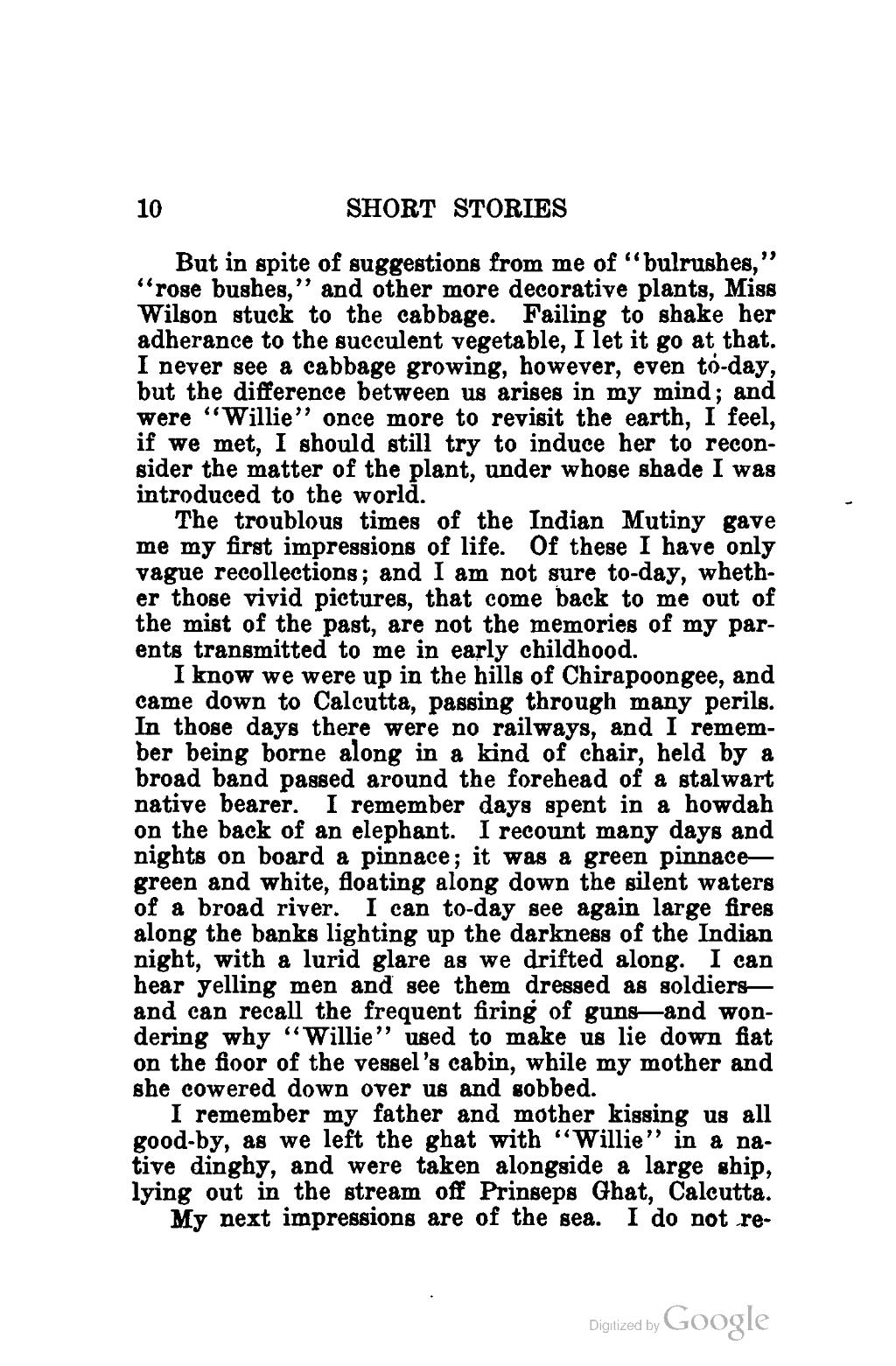But in spite of suggestions from me of "bulrushes," "rose bushes," and other more decorative plants, Miss Wilson stuck to the cabbage. Failing to shake her adherance to the succulent vegetable, I let it go at that. I never see a cabbage growing, however, even to-day, but the difference between us arises in my mind; and were "Willie" once more to revisit the earth, I feel, if we met, I should still try to induce her to reconsider the matter of the plant, under whose shade I was introduced to the world.
The troublous times of the Indian Mutiny gave me my first impressions of life. Of these I have only vague recollections; and I am not sure to-day, whether those vivid pictures, that come back to me out of the mist of the past, are not the memories of my parents transmitted to me in early childhood.
I know we were up in the hills of Chirapoongee, and came down to Calcutta, passing through many perils. In those days there were no railways, and I remember being borne along in a kind of chair, held by a broad band passed around the forehead of a stalwart native bearer. I remember days spent in a howdah on the back of an elephant. I recount many days and nights on board a pinnace; it was a green pinnace—green and white, floating along down the silent waters of a broad river. I can to-day see again large fires along the banks lighting up the darkness of the Indian night, with a lurid glare as we drifted along. I can hear yelling men and see them dressed as soldiers—and can recall the frequent firing of guns—and wondering why "Willie" used to make us lie down flat on the floor of the vessel's cabin, while my mother and she cowered down over us and sobbed.
I remember my father and mother kissing us all good-by, as we left the ghat with "Willie" in a native dinghy, and were taken alongside a large ship, lying out in the stream off Prinseps Ghat, Calcutta.
My next impressions are of the sea. I do not re-
